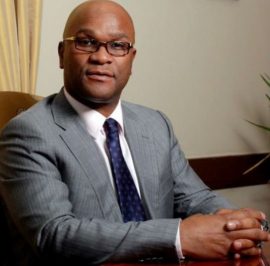
Minister of Sport, Arts and Culture, Nathi Mthethwa has disputed claims that government has been unresponsive to the needs of the creative and sport sector during the COVID-19 pandemic.
“We are today stating it unequivocally that statements and allegations suggesting the department has been unresponsive and uncaring are not backed up by fact,” the Minister said on Thursday.
The department has implemented a number of relief fund measures for the creative and sports sector amounting to more than R640 000, benefiting 63 343 beneficiaries.
These interventions were done in partnership with the Department of Small Business Development, the Presidential Employment Stimulus Programme (PESP) as well as the Solidarity Fund.
Addressing a live engagement session with the media about the support provided to the creative and arts sector, Mthethwa said the department is unable to support each role player in the sector in need of assistance because of limited resources and not because of refusal to support.
“If anything, monies spent thus far are just under R 700 million that is over half a billion rand. This translates into just under 65 000 beneficiaries. By all accounts, this cannot be counted as a small feat,” said Mthethwa.
The department’s Deputy Director General (DDG) Dr Cynthia Khumalo said the department received R665 million from National Treasury as part of the Presidential Economic Stimulus Programme.
Through its entities, the department implemented nine different projects for the programme. To date, R472.3 million has been disbursed to retain/create 42 624 jobs.
Relief funding
During the first phase of the COVID-19 relief funding, R84 million was distributed, R4.5 million during the second phase and R58.3 million during the third phase. The funding distribution by Solidarity Fund amounted to R5.9 million.
In July, the department issued an open call for the industry to apply for the Mzansi Golden Economy (MGE) funding.MGE is a strategy to reposition the cultural industries in South Africa. The MGE strategy opens up the arts; culture and heritage sector to comprehensively contribute to economic growth and job creation.
“A total of 3558 applications were successfully verified. Adjudication of Public Art applications is currently underway. Results will be announced per work stream, public art, then touring ventures and lastly cultural events.
“The department has continued to partner with Business and Arts South Africa in offering the Debut Fund program, targeting emerging artists working in all disciplines in all provinces who are between the ages of 18 to 35-years-old. Individuals from rural/peri-urban communities were given first preference,” Khumalo said.
The Debut Programme sets out to transfer enterprise development skills to a carefully selected cohort of artists from all nine provinces.
“The programme also develops the artists to become resourceful, opportunistic, agile, and sustainable “art-repreneurs” who can make a profitable livelihood from their artistic talent,” Khumalo said.
The programme has been divided into three phases namely: Kickstarter - 450 participants; Hlanganisa - 180 participants (each received a Catalyst Grant of R15 000) and Catalyst - 18 participants (each will receive a Launch Grant ranging between R30 000 - R50 000) and mentorship.
“The Programme is currently in the Hlanganisa phase where they have been introduced to an agile way of testing a service/product, and developing a new business venture online.
“This phase also includes mentorship sessions with provincial Mentor/Facilitators as participants work towards the inaugural Debut Programme Online Art Fair Week: an opportunity to showcase and take their products to market online. The total amount of grant funding just for this financial year is R2.7 million,” Khumalo said.
Fourth Industrial Revolution
Other interventions include the department collaborating with the South African Cultural Observatory (SACO) to give 800 participating artists skills that allow them to participate in opportunities presented by the Fourth Industrial Revolution (41R).
This project has just commenced and has been made possible by the Presidential Employment Stimulus Programme Funding amounting to R30 million.
“Right now 716 artists from six different provinces (excluding Gauteng; Western Cape and KwaZulu-Natal) have registered; and 100 graduates who will be working with them. Each participating artist and graduate will be getting a monthly stipend of R6 500 between the periods August 2021 to November 2021,” Khumalo said.
The department has finalised the development process of the Cultural and Creative Industries Master Plan, which is a blueprint document with short, medium and long-term interventions aimed at bringing about economic recovery for the industry beyond COVID-19. –SAnews.gov.za


